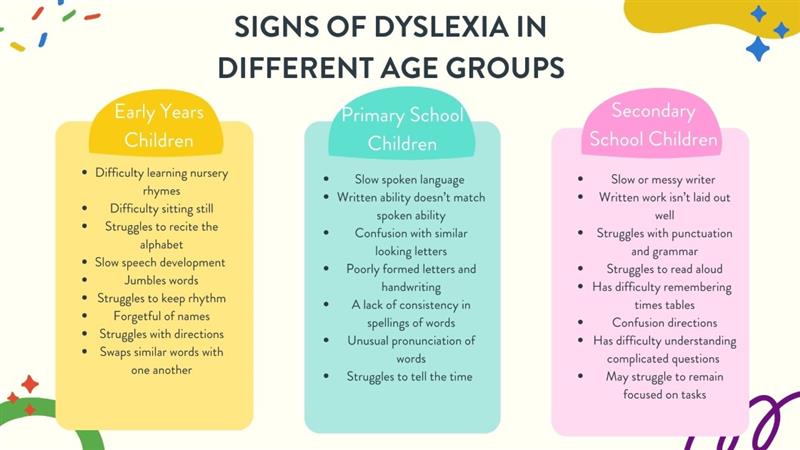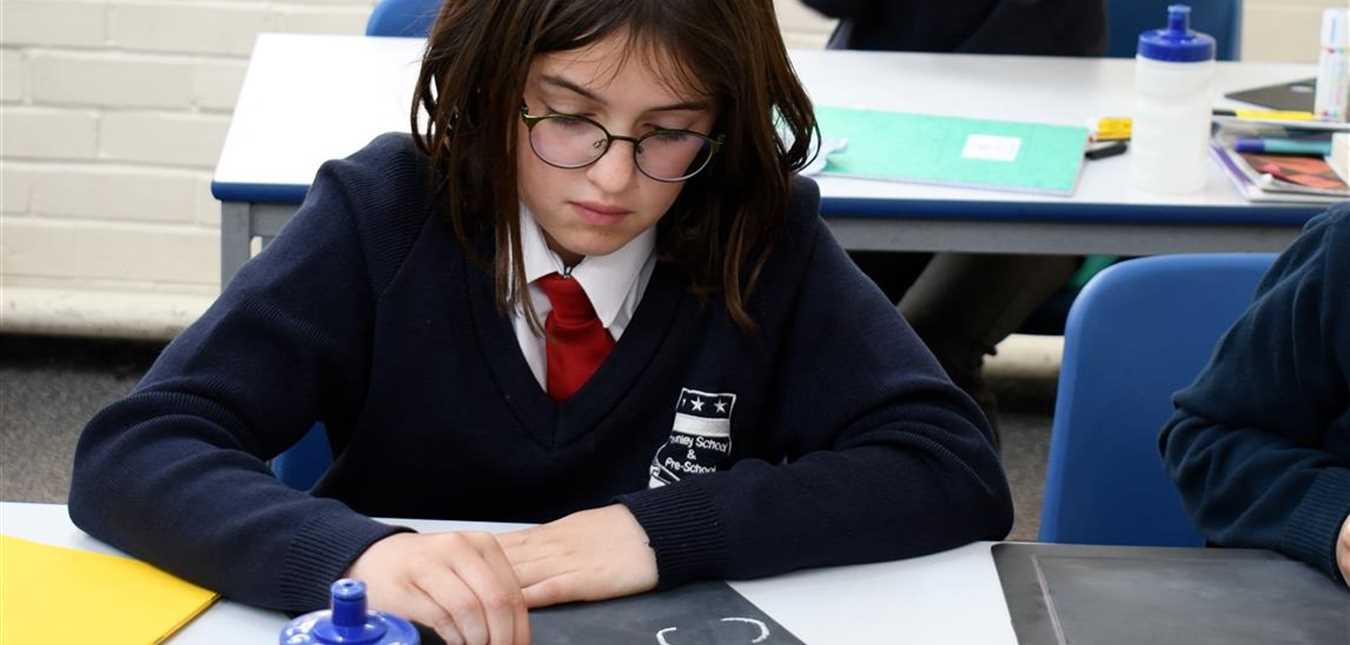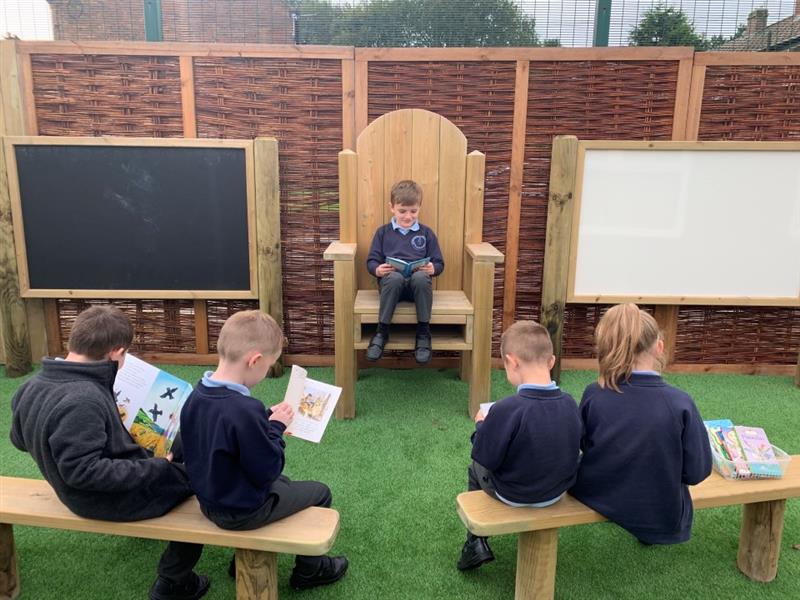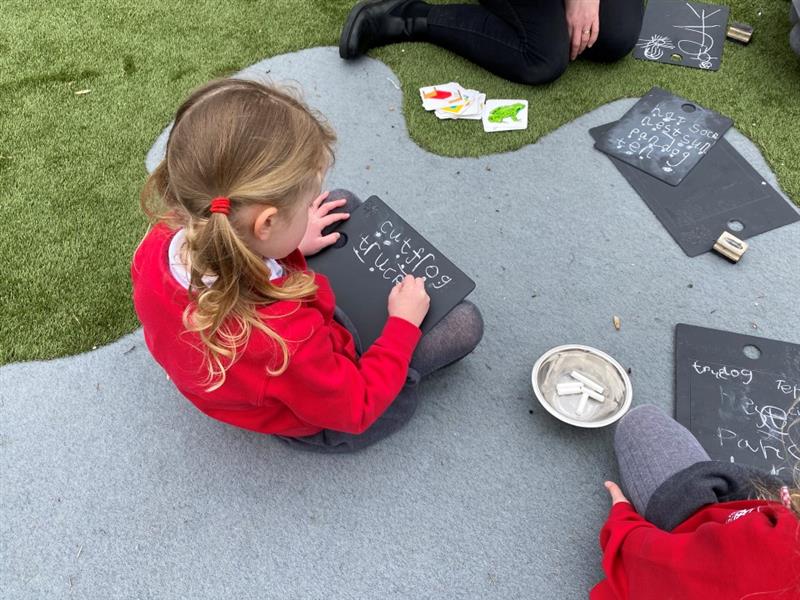.jpg)
Special Educational Needs
How you can spot dyslexia in your children, and how you can support their learning
To celebrate Dyslexia Awareness Week, Pentagon Play is helping to raise awareness and encourage support for young learners struggling with dyslexia in their daily school life.
This blog is designed to help you identify the signs of Dyslexia in young people, and how best to support them with activities, tips, tricks, and advice.
We’ll also point you in the direction of helpful resources and contacts!
What are the signs of Dyslexia?
The signs of Dyslexia in children can vary as they age, so depending on the age of your child or pupils, you may need to be looking for different signs.
However, there are some common signs to keep an eye out for:
- Reading level below their expected reading level for children their age
- Difficulty processing and understanding what they are hearing
- Struggling to find the right word to answer a question
- Jumbled sequences of events in their memory
- Trouble differentiating between similarly spelt/sounding words
- Difficulty sounding out pronunciations
- Struggles spelling
For more information on the different signs for each ages, see this graph below!
 With thanks to the British Dyslexia Association
With thanks to the British Dyslexia Association
Supporting a child with Dyslexia
Create a Designated Reading Time
Creating a set time to do some guided/joint reading with your child or pupils every day is a great way to incorporate reading as a regular part of the child’s routine.
Spending some time daily reading together will take the pressure of reading and make it a fun activity for a teacher and class or a parent and child.
Children will feel supported as they build their skills and become more confident with reading, and it will allow you to also have a regular insight into their reading progress.
Lead Creative Activities
A great activity to support children with Dyslexia is to lead short, fun, and creative activities, where children follow your instructions to make or create something really cool.
Children with Dyslexia can struggle with directional and positional language, as well as with following instructions, especially multiple at a time.
Leading an activity relevant to their interests and giving them one instruction at a time may help them to process instructions more effectively and improve their understanding of directional language.
If it’s a simple activity to recreate, you can do this regularly but give the child more instructions to remember at each time, building their memory and learning about their limits and capabilities.
A Poem a Day
Working with your child or your pupils to create a short, rhyming poems based on topic, words or themes each day or week is a great way of familiarising children with similar sounding words/spellings.
It’s also great for encouraging creativity and having open conversations about how different words are spelt, and why they may be spelt certain ways.
Here are some other tips that may be beneficial:
- Pointing to words as they say them when reading aloud
- Read the same books regularly so the child is familiar with the words and the story
- Link images or ideas with letters of the alphabet
- Clap for syllables in words and names
- Praise regularly where appropriate
Places to receive support for Dyslexia
- Your local GP
Pentagon Play is proud to support Dyslexia Awareness Week, but our support for young people with dyslexia started earlier this year!
When 10-year-old Charlotte, from Townley Primary School in Cambridgeshire contacted Pentagon Play, she explained her own experience with dyslexia and asked for the company’s help to thank the school for all the help they provided her.
“I am leaving to go to secondary school this July, and I have decided because the school have helped me so much with my dyslexia, I want to help them before I go.”
Pentagon Play knew that this was something that they would love to be involved with, so they decided to donate something beneficial for reading and writing, and also a special gift for Charlotte and her class.
The pupils at Townley Primary School received 30 handheld chalkboards, great for writing and drawing with, as well as a Leavers Bench.
Watch the video now to find out more about Charlotte’s Experience.


.jpg)



.jpg)
.jpg)